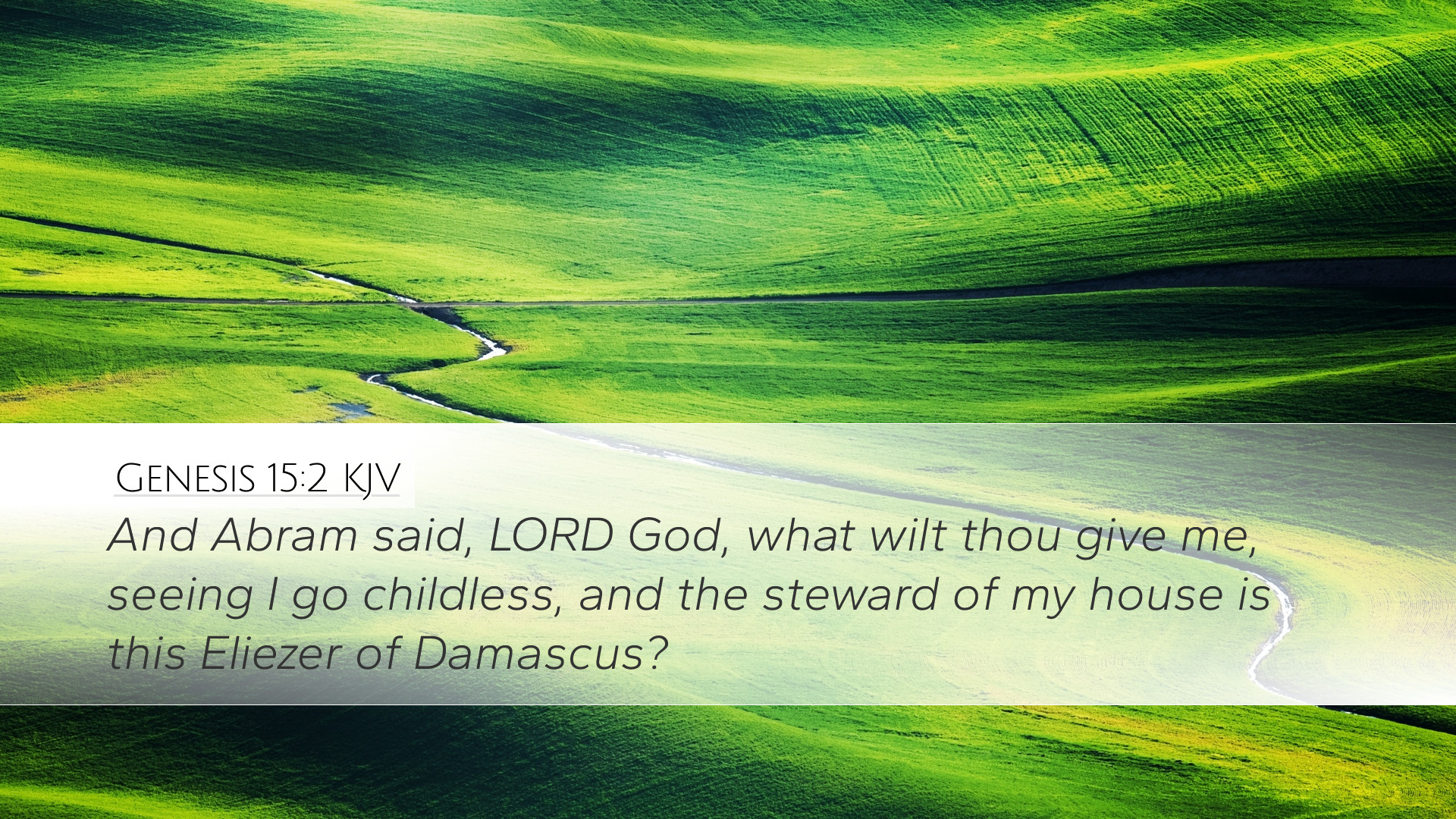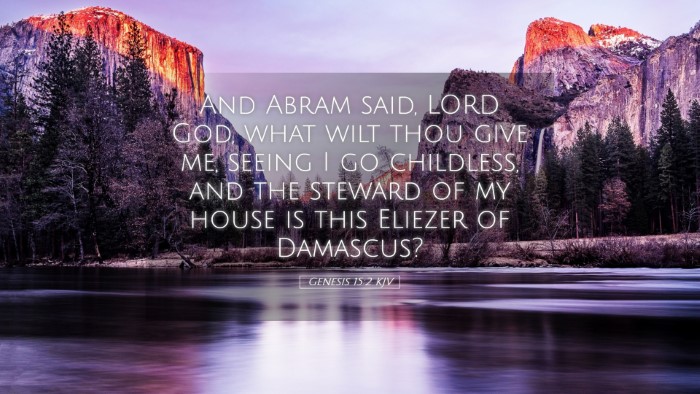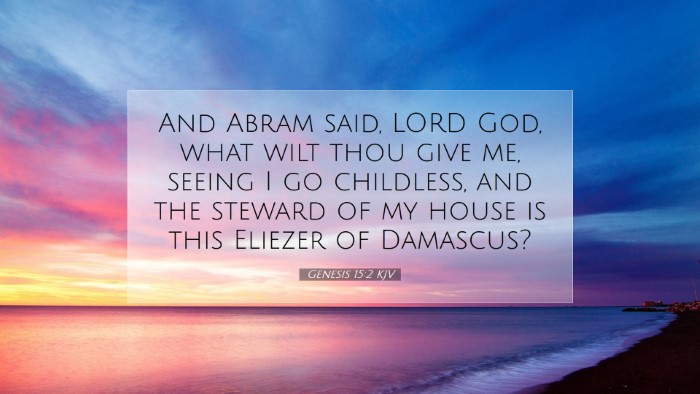Commentary on Genesis 15:2
Genesis 15:2 (KJV) states:
“And Abram said, Lord God, what wilt thou give me, seeing I go childless, and the steward of my house is this Eliezer of Damascus?”
This verse is pivotal in understanding the covenant that God makes with Abram (later named Abraham) and sets the stage for a deeper exploration of faith, hope, and divine promise.
Contextual Overview
The chapter itself presents a moment of intimate dialogue between God and Abram, highlighting Abram's concerns due to his childlessness. This dialogue reveals his vulnerability and longing for an heir, which reflects broader themes of trust and divine provision.
Insights from Matthew Henry
Matthew Henry emphasizes Abram's inquiry as a demonstration of his faith and the nature of his relationship with God. He conveys the idea that:
- Abram's Concern: Abram's reference to his childless state signifies a genuine concern for his legacy and inheritance. The steward, Eliezer, represents all that Abram fearfully believes will be his only heir.
- The Nature of God's Promises: Henry notes that God's promises cannot be constrained by human limitation; what seems impossible to us is entirely feasible for God.
- Faith in Waiting: The timing of God's promises often requires patience from the believer, a theme prevalent in the lives of many biblical characters.
Insights from Albert Barnes
Albert Barnes provides a rich exposition of Abram's statement and the implications of God’s promises:
- Abram's Acknowledgment of God’s Sovereignty: Barnes notes that Abram’s address to God acknowledges Him as 'Lord God', highlighting the submission and respect owed to the Almighty in times of distress.
- The Role of Eliezer: By naming Eliezer, Abram acknowledges the current state of his household, illustrating the simplicity of human implementation contrasted with God's vast plans.
- The Issue of Discontent: Barnes discusses the notion of discontent arising from unmet expectations, a sentiment that resonates with many believers seeking fulfillment in life.
Insights from Adam Clarke
Adam Clarke’s commentary delves into the significance of the covenant and Benjamin's place in God's narrative:
- A Contrast between Human and Divine Fulfillment: Clarke highlights that while Abram sees a lack of heirs, God envisions vast promises for generations stemming from Abram’s lineage.
- The Assurance of God’s Providence: Clarke encourages readers to see this moment as God’s assurance that His plans far exceed human understanding or timelines.
- Theological Implications: The declaration of childlessness propels Abram towards a deeper faith, allowing God’s narrative to unfold, which emphasizes reliance on divine providence over human effort.
Theological Implications
In summary, Genesis 15:2 stands as a profound moment illustrating crucial theological tenets:
- The Nature of Prayer: This verse embodies a model of prayer where an individual candidly presents their fears and needs before God, expecting a response.
- Faith vs. Sight: Abram's situation exemplifies living by faith rather than by sight, a doctrine that extends throughout biblical theology.
- Legacy and Covenant: The reference to an heir not only emphasizes personal legacy but also opens the dialogue regarding the Abrahamic covenant, which has ramifications for understanding Israel's purpose and the Messianic promise.
Conclusion
Genesis 15:2 is a deep well of insight for pastors, students, theologians, and Bible scholars. It invites contemplation on the tension between divine promise and human doubt, urging believers to engage in faith-filled dialogue with God. As Abram sought understanding, so are believers encouraged to seek clarity in God's unfolding plans, recognizing His sovereignty and faithfulness throughout the generations.


